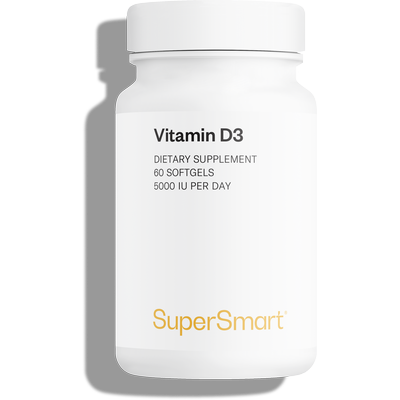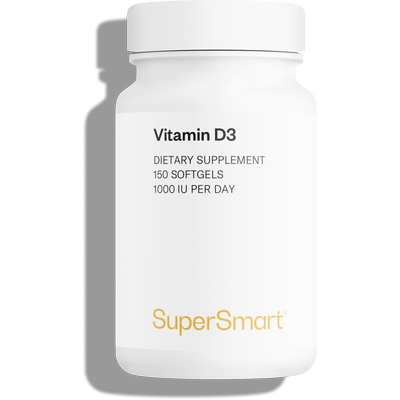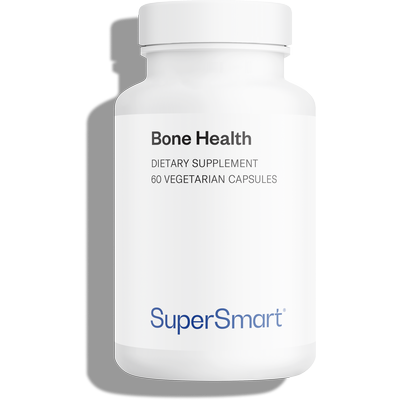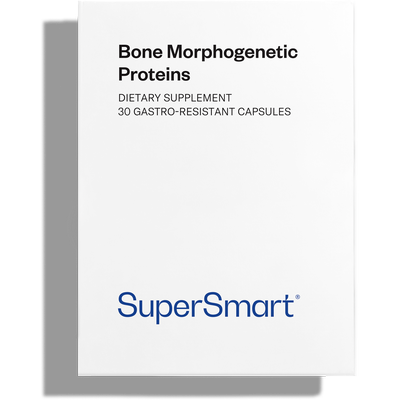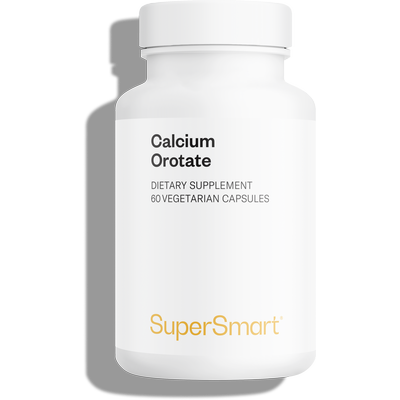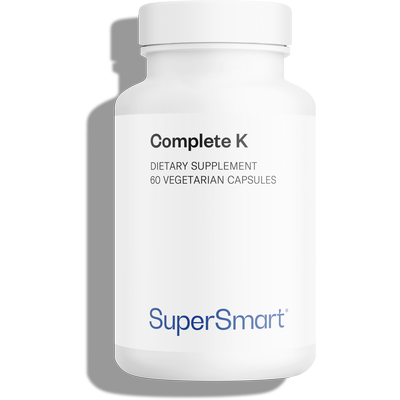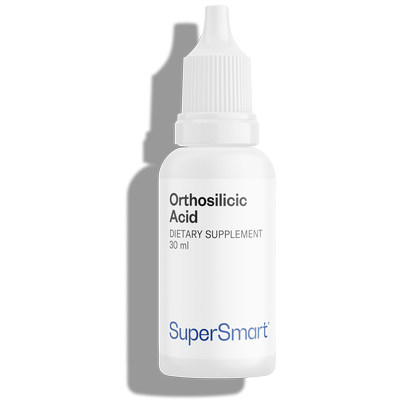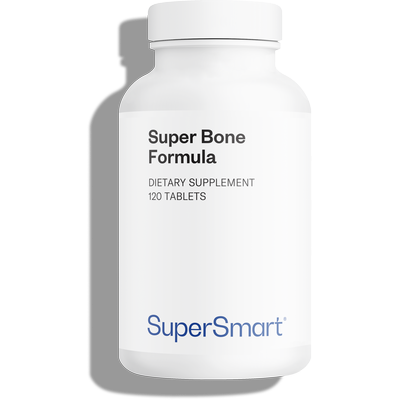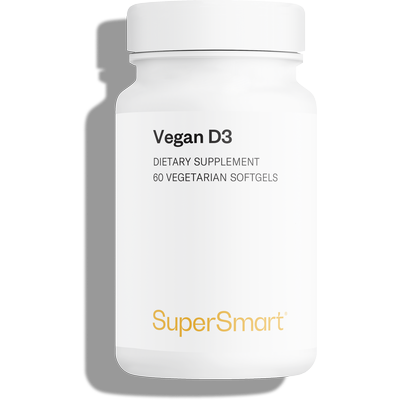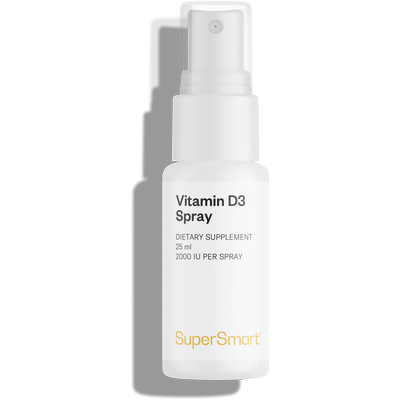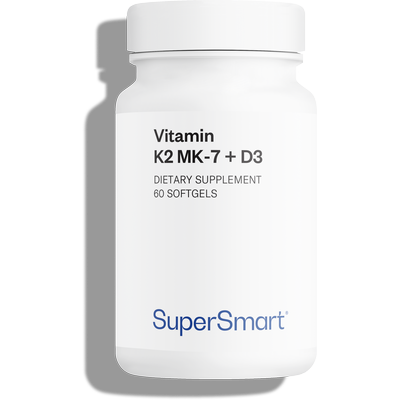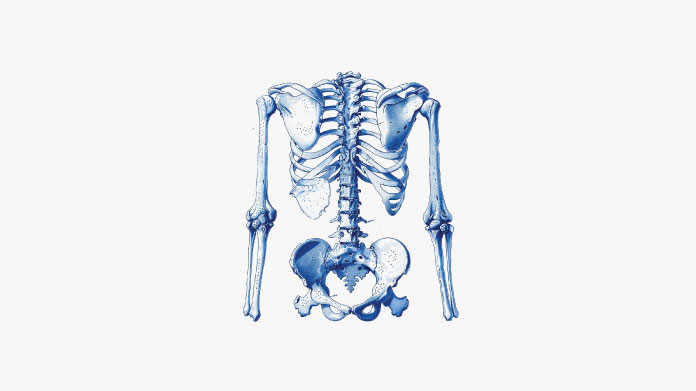Which supplement should you choose for strengthening the bones?
Bones are the body’s framework – they protect our internal organs and control our mobility. Discover the best natural substances for maintaining healthy bones.
Recap: why do our bones get weaker over time?
Bone is a dynamic connective tissue, the renewal of which is governed by two large specialised cell groups: osteoblasts and osteoclasts. The first are responsible for the formation and mineralisation of new bone tissue, and the second for resorption of old or damaged bone structures. When the activity of these two cells groups is in balance, bone remodelling takes place smoothly.
However, this resorption-formation cycle undergoes significant variations over a lifetime. Up till the age of 21 or so, while the body is growing, osteoblasts are the more active of the two. The skeleton progressively builds bone until it eventually reaches peak bone mass, the extent of which depends on a combination of genetics, participation in sport and diet. Over the next ten years, bone mass stabilises before starting to gradually decline with age under the pressure of osteoclasts.
In the case of significant loss of bone density, bones become extremely fragile, resulting in an increased risk of fractures, bone pain and skeletal deformity. With the fall in oestrogen levels that occurs at menopause, women are at greater risk of these problems, which are commonly referred to as osteoporosis.
Even if we differ in our risk of bone fragility, we can all take steps to support our bone structure by focusing on our intake of vitamins, minerals and other appropriate compounds.
Vitamins we can count on to protect bone health
By facilitating calcium and phosphorus absorption in the gut and reducing urinary loss of these minerals, vitamin D plays a direct role in maintaining healthy bones. Though dietary sources are relatively few, confined mainly to oily fish, egg yolk and fortified dairy products, vitamin D can also be produced by exposing the skin to the sun. If you work indoors, or rarely go out in the sunshine, vitamin D supplementation (with the convenient Vitamin D3 Spray 2000 UI for example) can therefore make a real difference.
Better known for its effects on immunity, vitamin C also supports normal collagen formation which is important for healthy bone function. The most abundant structural protein in the body, collagen is responsible for the rigid and slightly flexible aspects of bones. Dietary sources include kiwi, citrus fruit, peppers and cabbage, but you can also benefit from supplementation (with, for example, Liposomal Vitamin C, a natural liposomal vitamin C supplement). Perfect for those who are less than keen on fruit and vegetables!
Available in two forms (K1 and K2), vitamin K plays a role in normal clotting of the blood but also in maintaining healthy bones by controlling calcification of bone tissue.
Of the two forms, vitamin K2 has a greater affinity with bones and is produced by gut bacteria, though unfortunately, most of this is excreted in stools. It therefore makes sense to boost your intake through direct consumption, either from the diet (fermented foods, meat, offal, fish oils) or by taking supplements (such as Complete K, which contains one form of vitamin K1 and two of vitamin K2 including MenaQ7®, the most active and bioavailable form on the market).
Minerals to focus on for maintaining healthy bones
No discussion of bone health could possibly exclude calcium! With 99% of the body’s calcium concentrated in bone tissue, this key skeleton-building mineral plays a major role in maintaining healthy bones . As well as mineralising bones, our calcium stores also regulate calcium levels in the blood: if they are too low, the body mobilises the calcium in bones and redirects it towards the blood. As a result, a diet with too little calcium (no dairy products, cruciferous vegetables or mineral water) poses a greater risk of premature bone fragility.
Did you know that 50% of the body’s total magnesium is concentrated in bone mass? As well as helping to maintain normal bone tissue, magnesium promotes calcium uptake by supporting vitamin D synthesis. To boost your intake of this mineral, choose forms that are well-absorbed by the body (such as the 8 carefully-selected substances in OptiMag, a supplement guaranteed free of magnesium carbonate, hydroxide or oxide).
Even though they are only present at minute levels in the body, trace elements should not be neglected. Over 20% of the body’s zinc is concentrated in our bones, and it is involved in almost 300 different biochemical reactions. Helping to safeguard the health of our bones, it acts, in particular, as a cofactor of enzymes involved in building the bone matrix.
Another important trace-element is manganese which supports bone health by slowing down demineralisation. The body’s 20mg of manganese is distributed across the skeleton, the liver and the kidneys. The best dietary sources are plant-source foods (especially pulses, almonds, hazelnuts and wheatgerm).
So to conclude, which supplement should you choose for your bones?
On paper, the ideal supplement for maintaining healthy bones would have to combine all or at least some of these components.
Rich in calcium and also containing zinc, magnesium, vitamin D3 and vitamin K2, the supplement Super Bone Formula combines the best substances for supporting bone health. It also features an extract of tabashir bamboo (Bambusa arundinacea) which supports bone and joint health primarily through its exceptional content of organic silica.
As standard treatments for osteoporosis can produce side-effects, naturopaths recommend using plant-source formulations to support bone health in older age. Popular bone health ingredients in traditional medicine include astragalus, Rehmmania root and Eucommia ulmoides (all of which are included in the 100% natural supplement Bone Health).
The subject of much scientific interest since the mid-20th century, morphogenetic proteins (as contained in the advanced supplement Bone Morphogenetic Proteins) have also opened up a highly promising avenue in the field of osteoarticular health.
Discover also our anti-fatigue dietary supplements, our supplements for slimming, our supplements for joint health and our dietary supplements for athletes.

